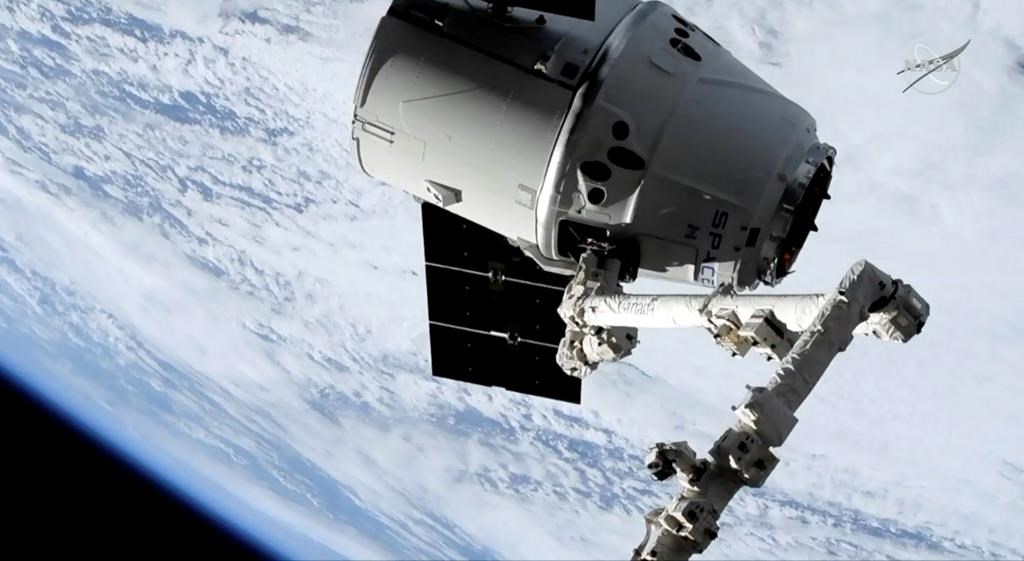NASA launched an investigation this week into the first-ever allegation of a crime committed in outer space, which has raised a number of questions about which national laws would apply to the accused if she is charged.

NASA astronaut Anne McClain was accused by her estranged wife Summer Worden of accessing Worden’s bank account without permission from the International Space Station (ISS), where McClain had been living for six months. McClain claims she was simply ensuring the couple had enough money to pay their bills.
McClain has denied that she engaged in any illegal activity.
While the legal dispute between the couple is still somewhat unclear, the incident has raised questions about which laws would apply if the investigation into McClain’s conduct on the ISS yields charges.
Which laws apply when you commit a crime in space?
According to experts, the applicable set of legislation depends on where in outer space a crime is committed. Joanne Gabrynowicz, editor-in-chief of the Journal of Space Law, explained that a crime committed in open space, or on celestial bodies, would be subject to international space law.
However, a crime committed on the ISS, such as the alleged crime in this case, would be subject to a multilateral agreement that governs the ISS, to which 16 nations are party. The International Space Station Intergovernmental Agreement (IGA) is based on international law and four existing space treaties.
In order to understand the treaty, it’s important to understand the makeup of the ISS. The ISS consists of country-specific modules.
WATCH: Rover McRoverface? NASA holds open content to name the Mars Rover

“The law of the nation that contributed and registered the module applies to that module,” she said. “Further, each astronaut is governed by the law of the nation they represent. Therefore, which nation’s criminal jurisdiction will apply depends on which nation’s module the alleged crime was committed and which nation the alleged perpetrator is from.”
Ram Jakhu, a professor with McGill University’s Institute of Air and Space Law, also says each country has the right to prosecute — or not prosecute — their own nationals under this treaty.
In a situation in which an astronaut commits a crime in a module registered to another country, Jakhu says the rules are a little different.
“I would say that this person signs an agreement with the state, which the government is saying that he or she will subject himself to the laws of the country which is sending them,” Jakhu explained.
- Ont. First Nation calls for chemical plant to be shut down amid ‘dangerously high’ benzene levels
- Ottawa looks to launch national flood insurance program within 12 months
- Nova Scotia scraps spring bear hunt idea, public ‘very divided’ on issue
- Ecuador rations power, declares emergency as drought limits hydro output
Other complications can potentially arise, Jakhu says, when an astronaut holds dual citizenship, at which point it would likely have to be determined which country serves as their primary residence.
Which laws will apply in this case?
This case, both Gabrynowicz and Jakhu agree, is a fairly straightforward one.
McClain is an American national and was aboard the ISS on a U.S. module representing NASA. Therefore, should she be charged with a crime, she would be subject to American criminal law.
“So, in this case, my understanding that the alleged crime has been committed by an American on an American module and against an American, that means the use of law — the law that will be applied — will be American law,” Jakhu said.
WATCH: Astronauts attach second docking port, work on robotic arm at ISS

According to Gabrynowicz, if the alleged crime had been committed in outer space or on a celestial body, a number of international treaties and international criminal laws would be used to litigate. However, a crime committed on the ISS would be litigated through diplomatic proceedings as outlined in the IGA.
Astronauts being sent to the ISS from a country not party to the IGA or under the jurisdiction of a non-partner, she notes, would likely have a separate agreement that would specifically outline which laws would apply.
“As a practical matter, whose criminal jurisdiction would apply, and how it would be implemented, will be part of the specific agreement under which the astronaut will be brought to the ISS,” she said in a statement.
What will happen as travel to space becomes more common?
A number of corporations, namely Elon Musk’s SpaceX, have taken steps toward bringing tourists to outer space.
As work in this sector ramps up and the possibility of citizens visiting space becomes more realistic, experts are concerned that existing laws may not be adequate.
Jakhu predicts that intergovernmental bodies will need to develop a more universal set of laws that apply to those committing crimes — and engaging in otherwise legal or illegal acts — while they’re not on Earth.
However, he notes that governments make it a habit to address needs retroactively rather than acting proactively for fear of over-regulating.
“Governments do not pass laws for the sake of passing laws… I think that laws are a reflection of society. As society changes, the laws need to be changed. My wish as a legal expert is that I prefer laws to be simple and basic,” he said.
Gabrynowicz predicts that space law will develop much the same way as Earth law has, by applying experiential knowledge to write applicable law and develop existing law.




Comments